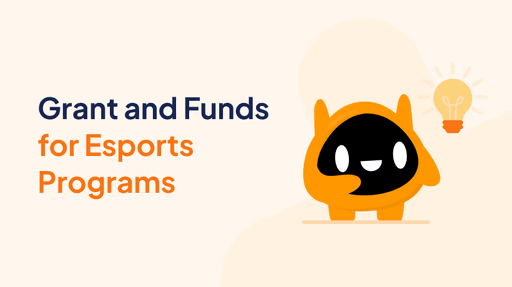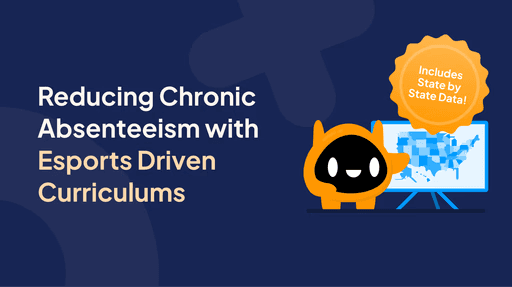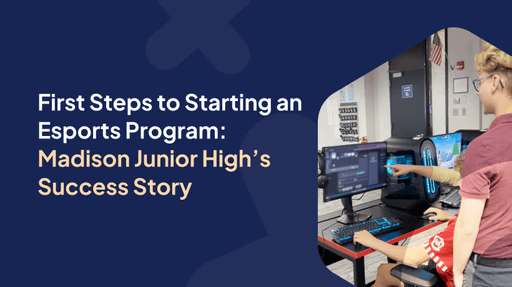Course Outline
Exploring careers in the esports ecosystem.
7 Units
50 Lessons
Available in English and Spanish
Unit 1 · 5 Lessons
Introduction & The Evolution of Esports
Explore the evolution of esports from its origins to the global phenomenon it is today. Students analyze the industry's growth, key milestones, and the wide range of careers available within esports.
Objectives
Understand course pacing and structure
Create class code of conduct
Explore the history of esports
Learn about the main stakeholders in the esports ecosystem
Research what lift of professional esports players look like
1
2
Unit 2 · 6 Lessons
Planning an Esports Event
Learn the fundamentals of creating and managing an esports organization by exploring goal setting, role assignment, resource management, and event logistics planning. Students create an organizational structure and a roadmap for successfully executing their esports event.
Objectives
Create a project plan
Assign roles and responsibilities
Draft organizational strategy
Set a budget for the esports event
Identify potential risks with project
3
Unit 3 · 9 Lessons
Esports Branding and Marketing
Students collaborate in teams to craft a compelling brand identity, develop a marketing strategy, and create all assets needed to recruit players and run their esports event.
Objectives
Develop a brand concept
Plan marketing campaigns
Draft social media calendar
Create marketing assets
Collect feedback and iterate
4
Unit 4 · 10 Lessons
IT & Networking for Esports
Set up the technical infrastructure for a professional esports event. Students will craft a comprehensive technical plan of the network, hardware and software requirements, and troubleshooting guides.
Objectives
Design a network layout
List hardware and software needed
Create contingency plan
Learn the basics of network security
Present a technical plan
5
Unit 5 · 11 Lessons
Shoutcasting
Learn the essentials of shoutcasting such as play-by-play narration, gameplay analysis, and audience engagement techniques. Students develop confidence in public speaking and show their ability to perform as esports commentators.
Objectives
Analyze key events in esports matches
Practice public speaking
Learn play-by-play and color commentary
Learn audience engagement techniques
Record shoutcasting demo
6
Unit 6 · 6 Lessons
Esports Event Planning
Finalize the event plan, including team matchups, scheduling, equipment setup, and audience engagement strategies. Students develop contingency plans to address potential challenges, ensuring a good event experience.
Objectives
Create detailed event schedule
Set up matches and brackets
Review IT setup, marketing, and shoutcasting
Rehearse setups, transitions and teamwork
Finalize comprehensive event plan
7
Capstone Project · 3 Lessons
Producing an Esports Tournament
The culmination of all previous lessons as students execute their esports event and apply their skills in a real-world setting. After the event, students conduct a post-event review to reflect on their success and identify opportunities for growth.
Objectives
Execute event plan
Manage tournament matches
Ensure participants have a good time
Handle unexpected events
Reflect and analyze event plan and execution
Professional Development
Integrate esports into the classroom
District wide course launch
Full lesson plans and teacher instructions
Set up IT infrastructure
Access to Educators Community
Devices











